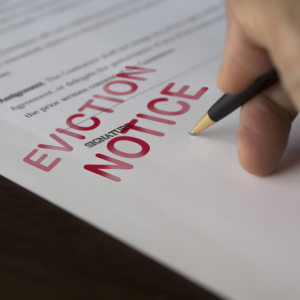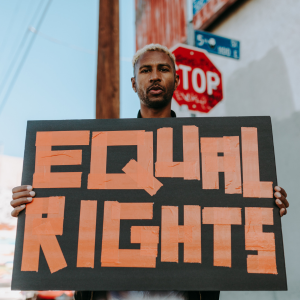
Understanding Squatter Rights and Laws in Maryland
In Maryland, anyone who deals with squatter-occupied property needs to know about squatter rights and the rules that go with them. People who live on someone else’s property without permission are called squatters. Squatters can sometimes get certain rights under certain situations.
Adverse possession rules are a big part of figuring out these rights in Maryland. In order for a squatter to claim adverse possession, they must have lived on the land for at least 20 years in a way that is known to everyone.
This means their presence must be obvious to anyone, including the rightful owner, and uninterrupted over this period. Property owners need to be aware that if squatters meet these criteria, they could potentially file for legal ownership of the property.
Maryland property owners need to check on their homes often and quickly remove anyone who isn’t supposed to be there. It’s also important to know how to evict people from your property in your state and locality, since getting rid of squatters usually means going through the court system instead of doing it yourself.
Once you’re familiar with these laws, you can confidently ensure your property investments are protected from unauthorized claims. Panda Pro Home Buyers is here to help, contact us today!
How to Get Rid of a Squatter in Maryland?

Dealing with squatters in Maryland can be a complex task, but understanding the legal procedures is crucial for property owners looking to regain control of their real estate. The first step in removing a squatter from your Maryland property is to determine whether the individual qualifies as a squatter under state laws or if they have tenant rights.
In Maryland, squatters may gain certain legal protections if they have occupied the property for an extended period without the owner’s permission. Property owners should serve a formal eviction notice as mandated by Maryland’s eviction laws, which often require delivering a written notice specifying the violation and allowing time for the squatter to vacate voluntarily.
If the squatter refuses to leave, landlords must file an unlawful detainer action in district court. It’s essential to gather evidence proving ownership and documenting any attempts to remove the squatter legally.
During this process, Maryland property owners are advised against using self-help eviction tactics such as changing locks or shutting off utilities, as these actions can lead to legal repercussions. Consulting with an attorney experienced in real estate and landlord-tenant law in Maryland can provide valuable guidance through each stage of evicting a squatter, ensuring compliance with all local regulations and increasing the likelihood of successfully reclaiming your property.
Can You Sell a House with a Squatter Living in It?
Selling a house with a squatter living in it can be a complex process, especially in Maryland, where specific laws govern the rights of both property owners and occupants. Understanding Maryland’s squatter rights is crucial when navigating this challenging real estate situation.
Squatters are individuals who occupy a property without legal permission, and their presence can complicate the selling process. In Maryland, property owners must follow legal procedures to evict squatters before attempting to sell the house.
This includes serving proper notice and potentially pursuing an unlawful detainer lawsuit if the squatter refuses to vacate. It’s essential to consult with a real estate attorney experienced in Maryland property law to ensure compliance with local regulations and effectively address any issues related to adverse possession claims.
Once the squatter issue is resolved, homeowners can proceed with listing the property on the market. Being proactive and informed about squatter-related challenges will facilitate a smoother transaction when selling real estate in Maryland.
How Long Can a Squatter Stay in Your House in Maryland?

In Maryland, the duration a squatter can remain in your house is influenced by several legal factors and eviction processes. Squatters’ rights, also known as adverse possession, allow individuals to occupy property under certain conditions, but these rights do not grant indefinite residence without legal action.
In Maryland, a squatter must reside openly and continuously on the property for at least 20 years before they can claim ownership through adverse possession. However, evicting a squatter involves navigating the state’s legal system effectively.
Property owners must file an unlawful detainer action to initiate the eviction process legally. Understanding Maryland’s specific laws regarding adverse possession and squatters is crucial for property owners dealing with squatter-occupied real estate.
If you’re dealing with unauthorized occupancy in Maryland, timely action and strict adherence to legal protocols are essential. Whether you’re protecting your rights or looking to sell your house fast in Annapolis, taking the right steps quickly can make all the difference
What Is the Difference Between a Trespasser and a Squatter in Maryland?
Understanding the distinction between a trespasser and a squatter is crucial when dealing with squatter-occupied real estate in Maryland. A trespasser is an individual who enters and remains on a property without permission, typically with no intention of staying long-term.
In contrast, a squatter occupies the property with the intent to reside there, often taking advantage of legal loopholes like adverse possession laws. In Maryland, squatters may claim rights to real estate if they occupy it openly, continuously, and without permission for a statutory period of 20 years.
This makes addressing squatter-occupied properties more complex than handling cases of simple trespassing. Property owners must navigate specific legal procedures to evict squatters effectively while ensuring compliance with state laws to regain control over their real estate.
Understanding these differences is essential for any property owner or real estate professional dealing with such situations in Maryland.
How Long Do You Have to Squat to Get a House?
In Maryland, the concept of adverse possession is crucial when discussing how long one must squat to potentially claim ownership of a property. Adverse possession laws in Maryland require an individual to occupy a property openly, continuously, and without permission for at least 20 years before they can attempt to gain legal title to the real estate.
This means that a squatter must demonstrate clear evidence of exclusive use and uninterrupted possession over this extended period. The process involves complex legal considerations, as the squatter must prove their occupation meets specific criteria under Maryland law.
Property owners facing squatter-occupied real estate should be aware of these laws to effectively manage or sell such properties. Understanding adverse possession is vital for both squatters seeking ownership and property owners aiming to protect their rights in Maryland’s real estate market.
What Are the Requirements for Adverse Possession in Maryland?

Adverse possession in Maryland is a legal doctrine that allows a person to claim ownership of real estate if they have occupied it for a certain period, under specific conditions. To successfully claim adverse possession, the occupant must meet several requirements: the possession must be actual, open and notorious, exclusive, hostile, and continuous for at least 20 years. “Actual” means the squatter must physically use the property as an owner would. “Open and notorious” requires the occupation to be visible and obvious, so the true owner is on notice.
“Exclusive” implies that the squatter possesses the property without sharing control with others or the public. “Hostile” indicates that the possession is against the rights of the true owner, without permission.
Lastly, “continuous” refers to the uninterrupted use of the property throughout the required period. Understanding this is essential when dealing with squatter-occupied real estate, especially in Maryland. These legal requirements significantly affect any attempt to sell such properties and are key to successfully navigating real estate transactions involving adverse possession claims. At the same time, it’s important to note that we buy houses in Maryland, including those with complex occupancy or title issues.
